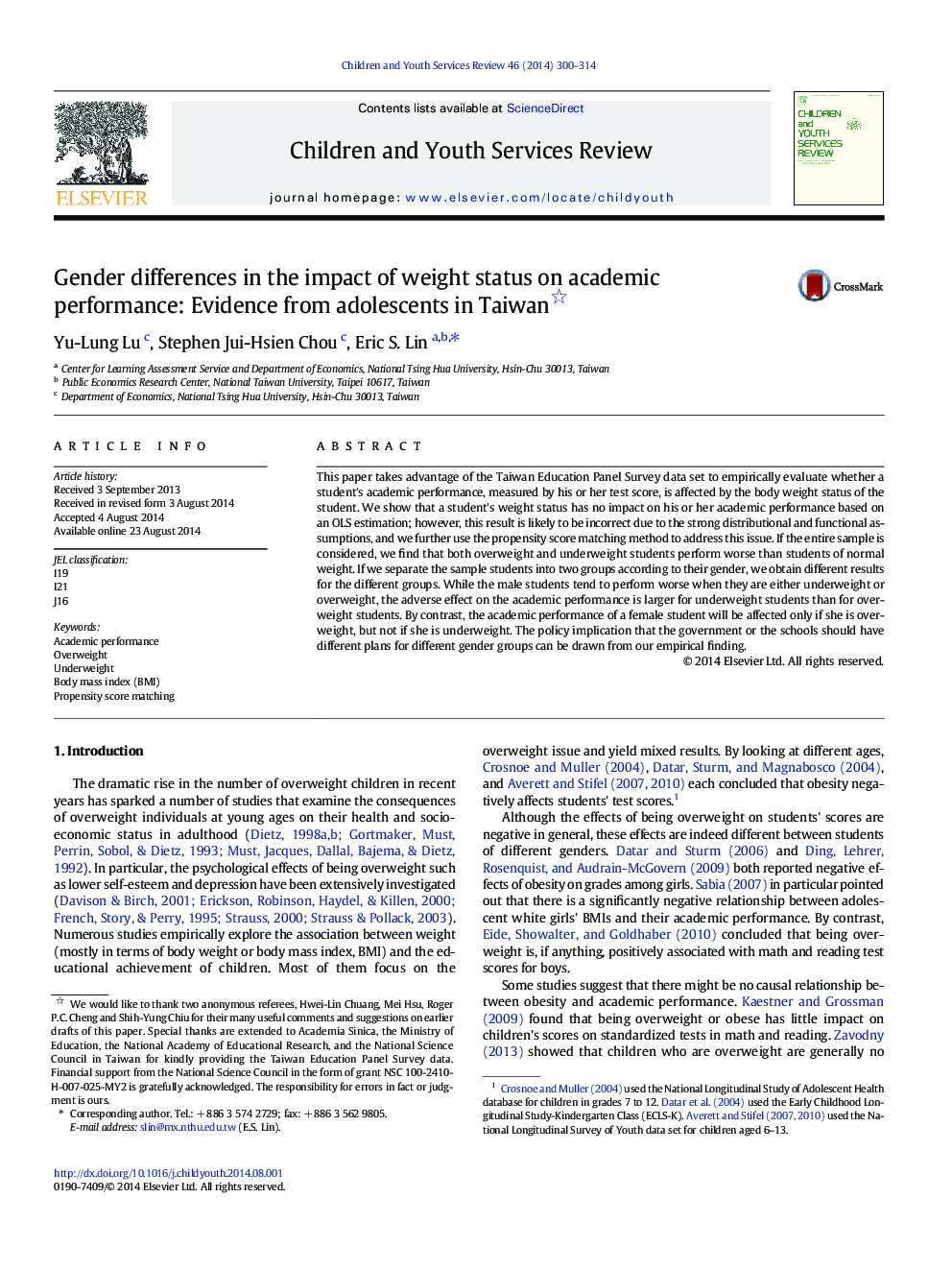| Article ID | Journal | Published Year | Pages | File Type |
|---|---|---|---|---|
| 6834205 | Children and Youth Services Review | 2014 | 15 Pages |
Abstract
This paper takes advantage of the Taiwan Education Panel Survey data set to empirically evaluate whether a student's academic performance, measured by his or her test score, is affected by the body weight status of the student. We show that a student's weight status has no impact on his or her academic performance based on an OLS estimation; however, this result is likely to be incorrect due to the strong distributional and functional assumptions, and we further use the propensity score matching method to address this issue. If the entire sample is considered, we find that both overweight and underweight students perform worse than students of normal weight. If we separate the sample students into two groups according to their gender, we obtain different results for the different groups. While the male students tend to perform worse when they are either underweight or overweight, the adverse effect on the academic performance is larger for underweight students than for overweight students. By contrast, the academic performance of a female student will be affected only if she is overweight, but not if she is underweight. The policy implication that the government or the schools should have different plans for different gender groups can be drawn from our empirical finding.
Keywords
Related Topics
Health Sciences
Medicine and Dentistry
Perinatology, Pediatrics and Child Health
Authors
Yu-Lung Lu, Stephen Jui-Hsien Chou, Eric S. Lin,
